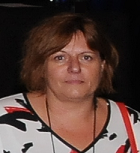UAHCI 2023, an affiliated conference of the HCI International Conference, at its 17th edition, provides an established international forum for the exchange and dissemination of scientific information on theoretical, methodological and empirical research that addresses all issues related to the attainment of universal access in the development of interactive software. It comprehensively addresses accessibility and high quality of interaction in the user interface development life-cycle in a multidisciplinary perspective.
The 17th International conference on Universal Access in Human-Computer Interaction (UAHCI) intends to help, promote and encourage research in this field by providing a forum for interaction and exchanges among researchers, academics, and practitioners in the field. The conference solicits papers on the design, development, evaluation, use, and impact of user interfaces, as well as standardization, policy and other non-technological issues that facilitate and promote universal access.

MARGHERITA ANTONA
Foundation for Research & Technology - Hellas (FORTH), Greece

CONSTANTINE STEPHANIDIS
University of Crete /
Foundation for Research & Technology - Hellas (FORTH), Greece
Disclaimer - Political Neutrality
The HCI International Conference respects the decisions of all its contributors, engaged in any way, regarding their institutional affiliations and designations of territories, in all material / content published in its website, taking a neutral stance in relation to any disputes or claims. Moreover, the HCI International Conference fully concurs with the Territorial Neutrality Policy of Springer Nature, Publisher of its proceedings.